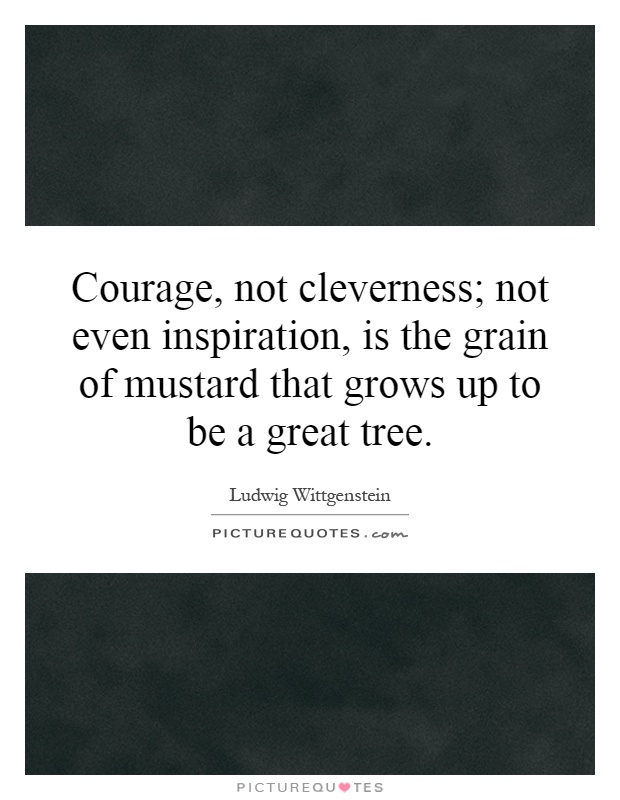Courage, not cleverness; not even inspiration, is the grain of mustard that grows up to be a great tree

Courage, not cleverness; not even inspiration, is the grain of mustard that grows up to be a great tree
Ludwig Wittgenstein, the renowned Austrian-British philosopher, is often considered one of the most influential thinkers of the 20th century. His work in the fields of logic, philosophy of language, and philosophy of mind has had a lasting impact on the way we understand the nature of language and thought. Wittgenstein's ideas were groundbreaking in many ways, challenging traditional philosophical assumptions and paving the way for new ways of thinking about the world.One of the key themes in Wittgenstein's work is the importance of courage in the pursuit of knowledge and understanding. He believed that true wisdom comes not from cleverness or inspiration, but from the willingness to confront difficult questions and challenge deeply held beliefs. In his famous work "Tractatus Logico-Philosophicus," Wittgenstein argues that the limits of language are the limits of our world, and that only by pushing beyond these limits can we hope to gain a deeper understanding of reality.
Wittgenstein's emphasis on courage as a necessary ingredient for intellectual growth is reflected in the quote, "Courage, not cleverness; not even inspiration, is the grain of mustard that grows up to be a great tree." This metaphorical image suggests that true intellectual growth requires more than just intelligence or creativity – it requires the bravery to face uncertainty and the unknown. Just as a tiny mustard seed has the potential to grow into a towering tree, so too does the willingness to confront difficult questions have the potential to lead to profound insights and understanding.












 Friendship Quotes
Friendship Quotes Love Quotes
Love Quotes Life Quotes
Life Quotes Funny Quotes
Funny Quotes Motivational Quotes
Motivational Quotes Inspirational Quotes
Inspirational Quotes